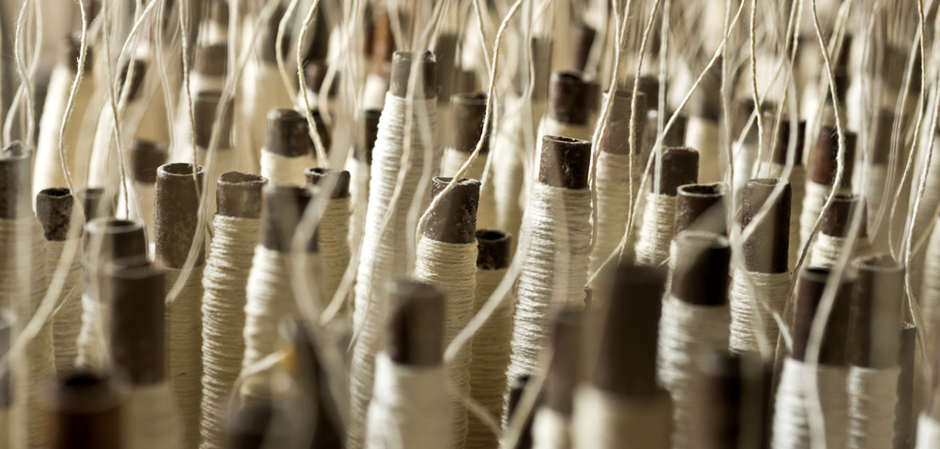Roman Efremov on Competence Centers in the textile and light industry
The XV International Scientific and Practical Conference "Trends in the Development of education" was held in Moscow. The main topic of the forum was the discussion of the quality of Russian education and reforms that contribute to its growth. At one of the venues, the Chairman of the Ivanovo Regional Duma Committee on Economic Development made a report "Staffing the competitiveness of the Russian textile industry and fashion industry"Roman Efremov.

The main idea of the report: in modern Russia, the training of specialists for the real sector of the economy does not meet the needs of enterprises, and the personnel problem becomes a serious barrier to the development of the Russian industry, in particular the textile industry and the fashion industry. In the USSR, in the conditions of a planned economy, these issues were regulated by the state, and today they are left to chance. At the same time, new professions in a market economy appear at an increasing rate, and educational organizations do not have time to adapt to technological innovations. There is no coordinating structure that would collect personnel requests from production workers, service companies, related industries, logistics organizations and send them to educational institutions.
The main problems of personnel training for the textile and light industry:
- poor quality of graduate training;
- lack of relevant industry training profiles in vocational and higher education;
- insufficient number of graduates.
The situation is complicated by the fact that the material and technical base of universities and SPO organizations, as a rule, lacks modern equipment, which is operated by Russian companies. There are no teachers and masters in educational organizations who would keep up with these changes, dual education is poorly developed (an option when the theoretical part of the training takes place on the basis of an educational organization, and the practical part is at the workplace). Educational programs do not correlate well with market demands.

As a result, we have a poor quality of graduate training, and most importantly, an imbalance of supply and demand in many professions, the lack of demand for some personnel and a shortage of others. According to preliminary estimates, in 2017, about half of all bachelors were accepted for the 1st year in the direction of "Design". At the same time, the share of designers and technologists combined is half as much. There is also a shortage of management specialists. Today, training in higher education in the following professions is relevant for the textile and light industry:
- developers, PLM system operators, CAD, CAM designers, developers of artificial intelligence systems;
- designers of new materials;
- operators of automatic equipment with programming skills;
- visionaries of needs;
- fashion marketers;
- system engineers (designers-technologists with design skills).
In these areas, there is a shortage of graduates or a lack of training profiles.
At the moment, there is virtually no textile engineering in Russia, the country does not produce not only complex and high-tech machines, but even sewing machines. When enterprises acquire spinning, weaving, finishing, cutting and other textile equipment, there is a problem not only with its installation and adjustment, but also with service maintenance. Universities do not train specialists in this profile, because they are not able to include in the educational process the consideration of technologies used by various manufacturers of machine tools, machines and mechanisms. They have neither qualified teachers nor a material and technical base.

As a result, Russian investors find themselves at a disadvantage, as they bring specialists from abroad and pay them more than they receive at home. Another option is for entrepreneurs to train operators, adjusters, repairmen, foremen, retraining technical specialists from other industries, for example, car mechanics. But this also requires the involvement of foreign professional mentors. Russian entrepreneurs lose time, money, and sometimes equipment, which is disabled by incompetent personnel.
At the same time, the differentiated system of public administration does not solve these problems. The Ministry of Industry and Trade is responsible for industry, the Ministry of Education and Science is responsible for education, the Ministry of Economic Development is responsible for regions, and the Ministry of Communications and Mass Communications is responsible for digital technologies. Each structure works in its own direction, and this problem requires joint interdepartmental interaction. It cannot be said that attempts are not being made to resolve it, the activities of the Russian Union of Industrialists and Entrepreneurs partially contribute to the solution, but its efforts usually concern only the manufacturing sector. In some regions of the Russian Federation, departments of education and economic development are involved in resolving the issue, trying to update information about available vacancies and the needs of the regional economy. However, most often these lists include only large well-known representatives of the market, and this introduces an additional bias into the already imperfect system of competition.
An alternative approach to solving the problem is possible : it is advisable to create Competence Centers by industry, which will regulate the relationship between education and production, taking into account regional specifics. At the same time, not only by branches of the digital economy, but also by traditional ones. These coordinating structures may operate on the basis of a public-private partnership or may not be associated with public financing at all. In addition to coordinating the list of professions and the number of specialists being trained, Centers could participate in the formation of the content of educational programs. To do this, it is advisable to collect a database of training centers, teachers, students, the latest world methods of education, evaluate their effectiveness and implement advanced achievements.

The tasks of Competence Centers in the textile and light industry and the fashion industry can be outlined as follows:
- determine the personnel needs, including collecting information about the specialties in demand by the market, for which training is not conducted in the education system of the Russian Federation;
- to form the bases of the latest educational practices for the Russian education system;
- to introduce the best practices, current methods and formats into the educational system of the Russian Federation.
Thus, Centers will work to ensure that graduates' competencies meet the requirements of the labor market and the development of the fashion industry. This approach to solving the problem could help to increase the competitiveness of our education in the field of fashion on the world stage. Russian educational institutions will become more attractive, including for foreign students. Undoubtedly, the quality of training of specialists will improve, fashion industry specialists in demand by the market and consumers will be produced.
Source: Ivanovo Regional Duma
Photo: shutterstock